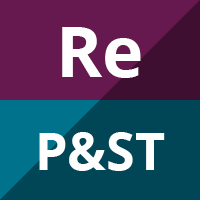
Home-based therapy programmes for upper limb functional recovery following stroke
Abstract Background With an increased focus on home-based stroke services and the undertaking of programmes, targeted at upper limb recovery within clinical practice, a systematic review of home-based therapy programmes for individuals with upper limb impairment following stroke was required. Objectives To determine the effects of home-based therapy programmes for upper limb recovery in patients […]

Monoamine oxidase inhibitors (MAOIs) for fibromyalgia syndrome
Abstract Background Fibromyalgia (FM) syndrome is a chronic condition of unknown aetiology characterised by musculoskeletal pain that often co-exists with sleep disturbance, cognitive dysfunction and fatigue. Patients often report high disability levels and poor quality of life. Since there is no specific treatment that alters the pathogenesis of FM, drug therapy focuses on pain reduction […]

Interventions for age-related visual problems in patients with stroke
Abstract Background The prevalence of eye problems increases with age and, consequently, so does the level of visual impairment. As the incidence of stroke also increases with age, a significant proportion of stroke patients will have age-related visual problems. It is possible that the effect of interventions for age-related visual problems may differ in the […]

Riluzole for amyotrophic lateral sclerosis (ALS)/motor neuron disease (MND)
Abstract Background Riluzole is approved for the treatment of amyotrophic lateral sclerosis in most countries. Questions persist about its clinical utility because of high cost and modest efficacy. Objectives To examine the efficacy of riluzole in prolonging survival and in delaying the use of surrogates (tracheostomy and mechanical ventilation) to sustain survival, and to assess […]

Cognitive stimulation to improve cognitive functioning in people with dementia
Abstract Background Cognitive stimulation is an intervention for people with dementia which offers a range of enjoyable activities providing general stimulation for thinking, concentration and memory usually in a social setting, such as a small group. Its roots can be traced back to Reality Orientation (RO), which was developed in the late 1950s as a […]

Treatment for spasticity in amyotrophic lateral sclerosis/motor neuron disease
Abstract Background Spasticity commonly affects patients with motor neuron disease. It is likely to contribute to worsening muscle dysfunction, increased difficulty with activities of daily living and deteriorating quality of life. This is an update of a review first published in 2003 and previously updated in 2005 and 2008. Objectives The objective of this review […]
Whole-body vibration training for patients with neurodegenerative disease
Abstract Background Whole-body vibration (WBV) may be a complementary training to standard physical rehabilitation programmes and appears to have potential benefits in the sensorimotor system performance of patients with neurodegenerative diseases. Objectives The aim of this review was to examine the efficacy of WBV to improve functional performance according to basic activities of daily living […]

Ergonomic positioning or equipment for treating carpal tunnel syndrome
Abstract Background Non-surgical treatment, including ergonomic positioning or equipment, are sometimes offered to people experiencing mild to moderate symptoms from carpal tunnel syndrome (CTS). The effectiveness and duration of benefit from ergonomic positioning or equipment interventions for treating CTS are unknown. Objectives To assess the effects of ergonomic positioning or equipment compared with no treatment, […]

Physical training for McArdle disease
Abstract Background McArdle disease is a rare metabolic myopathy caused by a complete absence of the enzyme muscle glycogen phosphorylase. Affected people experience symptoms of fatigue and cramping within minutes of exercise and are at risk for acute muscle injury (rhabdomyolysis) and acute renal failure. If the first few minutes of exercise are paced, a […]

Physical therapy for Bell´s palsy (idiopathic facial paralysis)
Abstract Background Bell’s palsy (idiopathic facial paralysis) is commonly treated by various physical therapy strategies and devices, but there are many questions about their efficacy. Objectives To evaluate physical therapies for Bell’s palsy (idiopathic facial palsy). Search methods We searched the Cochrane Database of Systematic Reviews and the Cochrane Central Register of Controlled Trials (The […]

